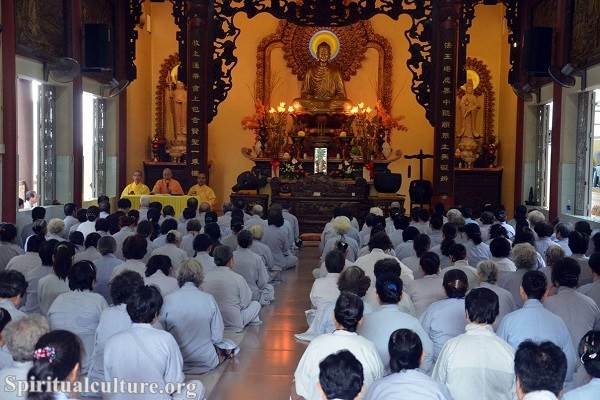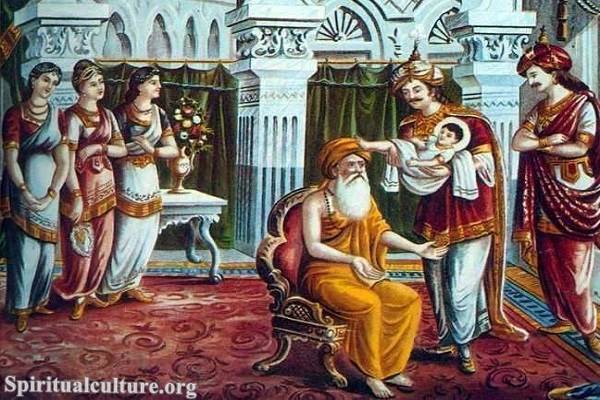We live in a time when more and more people are stepping away from organized religion—not out of rebellion, but from a deep, personal yearning for something more authentic, more intimate, more real. They may say, “I’m spiritual, but not religious.” But what does that really mean?
As Spiritual Culture, we invite you into this question not as a debate, but as a doorway. It opens into the most tender places of the human heart—our longing for transcendence, our search for meaning, our ache for connection to something beyond ourselves.
In this article, we explore what it means to be spiritual but not religious (SBNR), why so many are drawn to this path, what it gains—and what it risks losing. We’ll journey through sacred texts, psychology, and lived experience to ask: Can the soul thrive without tradition? Or do we need both roots and wings?
The Rise of the “Spiritual But Not Religious” Movement
A Growing Identity in the Modern World
Across the globe, there’s a noticeable shift. Pew Research shows increasing numbers of people, especially in the West, identify as “nones”—those with no religious affiliation. Yet many of these same individuals describe themselves as deeply spiritual. They meditate, pray, contemplate the universe, believe in love, energy, or a divine presence—but resist labels, dogma, or institutions.
Why Are People Leaving Religion?
Several factors drive this shift:
- Disillusionment with institutions: Scandals, hypocrisy, or outdated doctrines push many away from organized religion.
- Personal authenticity: People want to explore spirituality on their own terms, free of rigid rules.
- Global interconnectedness: Exposure to multiple cultures and belief systems encourages a more personalized, eclectic spiritual path.
- Trauma and exclusion: Many have been hurt by religious environments that judged, shamed, or excluded them.
Yet leaving religion doesn’t mean leaving the sacred. In fact, for many, it’s the beginning of a more personal spiritual quest.
What Does It Mean to Be Spiritual?
Spirituality as Inner Experience
At its core, spirituality is not about rituals or systems—it is about connection.
- Connection to the divine (however one defines it)
- Connection to the self—one’s inner life, emotions, soul
- Connection to others—through compassion, love, presence
- Connection to nature, mystery, and meaning
Spirituality Speaks in Many Languages
You might find spirituality in silence, in a sunrise, in a breath, in the pages of a sacred book—or in the face of a stranger. It’s not confined to a building or a tradition. As the mystics of every religion have long said: “God is closer than breath.”
The Bhagavad Gita reminds us:
“When meditation is mastered, the mind is unwavering like the flame of a lamp in a windless place.” (6:19)
Here, we see that spirituality is about inner stillness, awareness, and transcendence.
What Does It Mean to Be Religious?
Religion as Sacred Structure
If spirituality is the fire, religion is the hearth that holds it.
Religion provides:
- Sacred stories and scriptures
- Community and shared rituals
- Moral guidance and accountability
- A lineage of wisdom passed down through generations
Religions are like rivers that carry the water of the sacred. They have banks and boundaries—not to limit the flow, but to channel it meaningfully.
The Beauty of Religious Tradition
Religious traditions—when practiced with humility and love—can be deeply nourishing. Think of:
- The call to prayer echoing at dawn
- The Sabbath meal shared with family
- The chant of monks at twilight
- The Holy Communion, passed hand to hand
These are more than customs—they are ways the soul remembers.
As Jesus said,
“Where two or three gather in my name, there am I with them.” (Matthew 18:20)
Religion, at its best, gathers us, grounds us, and offers a spiritual path walked by many before us.
Can You Be Spiritual Without Being Religious?
Yes—But the Answer Is More Nuanced
The short answer is yes. You can absolutely be spiritual without identifying with a religion. But the longer and deeper answer is worth pondering.
Spirituality without religion may offer:
- Freedom to explore
- Intimacy with the sacred, unfiltered by institutions
- Creativity in forming one’s path
- Authenticity rooted in personal experience
But it may also bring:
- Isolation—no spiritual community or mentors
- Lack of guidance—no sacred texts or traditions to draw upon
- Shallow roots—difficulty going deep without discipline or practice
- Ego inflation—mistaking personal preference for divine truth
What Religion Can Offer Spiritual Seekers
The Power of Structure and Story
Even those who reject religion often seek out rituals, symbols, and sacred language—the very gifts religion provides.
Scripture as a Compass
Religious texts offer timeless wisdom:
- The Qur’an speaks of God’s mercy and the inner struggle (jihad) toward virtue.
- The Bible teaches love, forgiveness, and the mystery of grace.
- The Dhammapada offers insights into the nature of suffering and liberation.
- The Vedas sing of cosmic order and divine union.
These texts are not chains, but guiding stars—lighting the way when we feel lost.
Tradition as a Teacher
When we sit at the feet of a tradition, we don’t lose our individuality—we enrich it. We inherit songs, prayers, and stories honed through centuries of spiritual insight.
We may not need to obey religion, but we can learn from it.
Where the Two Meet: Spiritual Religion
Rediscovering Religion as a Living Path
Some people return to religion later in life—not to conform, but to go deeper. They bring their spirituality into religion and find it transformed.
This synthesis is not about labels—it’s about depth.
Saint Teresa of Ávila, a Catholic mystic, once said:
“It is love alone that gives worth to all things.”
When spirituality and religion unite in love, the result is a lived faith—vibrant, real, and transformative.
A Mirror and a Doorway
What This Conversation Reveals About the Soul
Whether you identify as spiritual, religious, both, or neither—this much is true:
The soul is seeking something sacred.
It may look like silence.
It may sound like chanting.
It may feel like awe.
It may arise in suffering or in joy.
But the seeking is there—and that is holy.
“You will seek me and find me when you seek me with all your heart.” —Jeremiah 29:13
The deeper question, then, is not what we call ourselves, but what we are truly longing for. Are we chasing an experience, or entering into a relationship with the Divine?
Reflect and Reimagine
If you describe yourself as spiritual but not religious, take heart: you are not alone—and you are not adrift. Your yearning is valid, your questions are sacred, and your path is real.
But do not walk it entirely alone.
Explore. Question. Read the sacred texts. Listen to the mystics. Learn from traditions not to confine you—but to deepen you.
You may find that religion, when approached with humility and curiosity, doesn’t imprison the spirit—it grounds it.
And spirituality, when rooted in love and truth, doesn’t reject religion—it fulfills it.
As Spiritual Culture, we bless your journey.
May your path be honest. May your spirit stay tender.
And may you find the Sacred—not just beyond you, but within you.





